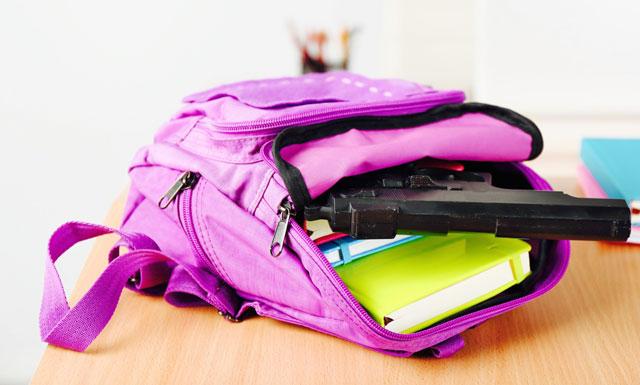You are here
How to bully proof your child
May 21,2018 - Last updated at May 21,2018

Photo courtesy of Family Flavours magazine
Bullying can affect the physical and emotional health of your child, both in the short term and later in life. Since there is no school in Jordan that is immune to the problem of bullying, we invited Kings Academy Dean of Middle School Reem Abu Rahmeh and Wellness and Advising Director, Nada Dakhil, to speak to parents at Ask Our Experts II*.
People tend to confuse normal peer conflict with bullying, so defining bullying is essential. Bullying entails three key elements, advise Abu Rahmeh and Dakhil:
• An intent to harm
• A power imbalance
• Repeated acts or threats of aggressive behaviour
Bullying
prevention skills
Abu Rahmeh and Dakhil highlight all that can be done to circumvent bullying:
• Helping children and teens learn how to express themselves and be heard
• Nurturing communication so that children feel comfortable connecting with at least one adult
• Talking about values
• Equipping children and teens with the tools to ask for help
• Teaching assertiveness: eye contact, how to carry themselves — your child’s body language affects how others see and interact with them
• Role playing: “We can’t tell children to stand up for themselves. We have to demonstrate it to them,” says Abu Rahmeh
• Equipping kids with conflict resolution tools
Bystander versus upstander
A bystander is someone who witnesses bullying but does not get involved. An upstander knows that what is happening is wrong and does something to help. Abu Rahmeh and Dakhil work on teaching students how to advocate for their friends and how to report bullying when they see it.
Dakhil noted that her school has a peer counselling programme where students are trained as peer counsellors to support other students. This helps report and reduce bullying. And since victims of bullying tend to have fewer friends, Dakhil encourages parents to arrange playdates, teachers to foster friendships behind-the-scenes and students to reach out to people who seem lonely.
School policy
Every school should have a bullying policy in place since every school is affected, says Abu Rahmeh. “We can say we don’t have tolerance for bullying, regardless of who the child is. Our school is clear on this – it doesn’t matter who you are. If you are bullying, there are learning opportunities and there are consequences,” she adds.
Dakhil stresses that reporting is not just for the victim: “it’s important for the culture of the school and for the bully too”, she says, noting that reporting “prevents escalation of the problem”. She notes that bullies tend to get vilified as the enemy, but it’s also important for schools to help the bully with emotional and social skills. “A child’s behaviour tends to be a reflection of something happening in their life — a risk factor, a life event.” This is when a school may get involved, conveying feedback to parents when we know what’s impacting the child.”
Takeaway message
for parents
Dakhil suggests tackling “any topic that’s heavy or raises anxiety and fears from a growth mind-set. This means approaching every situation, every conflict, as a growth opportunity for individuals and communities.” Abu Rahmeh says we think too much about children’s physical health and academic achievements, stressing that mental and emotional health is really important. “We need to think about wellbeing not just when a child is sick or failing in school but as a tool kit they need to be emotionally and mentally healthy,” she concludes.
Reprinted with permission from Family Flavours magazine
Related Articles
AMMAN — The prevalence of bullying in local schools has evoked reactions from educators and parents, who are calling for anti-bullying inter
One in five teens are victims of bullying, and these adolescents are about twice as likely to bring guns and knives to school than peers who
Children who are bullied in fifth grade are more likely to become depressed and experiment with drugs and alcohol during their teen years th













